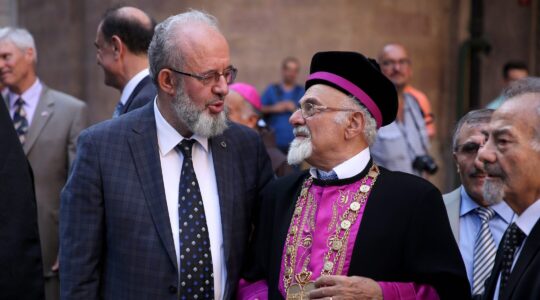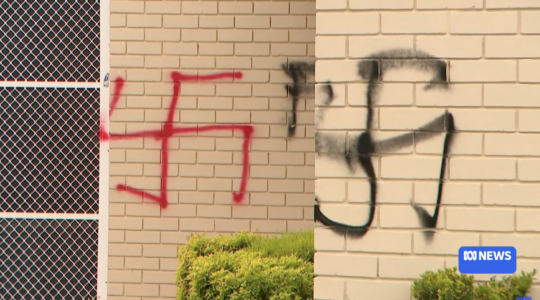(JTA) — Amid discussions on limiting ritual slaughter of animals in Belgium, a leader of the country’s Jewish community pleaded with lawmakers not to “repeat the Nazis’ acts.”
The statement Thursday by Philippe Markiewicz, president of the Consistoire organization of Belgian Jewry that is responsible for providing religious services, was unusual because Jewish community officials rarely draw comparisons between present-day issues and the Nazi occupation, which remains a sensitive subject in Belgium.
“The last assault on ritual slaughter was in October 1940 under the Nazi occupation because they knew how important it was for Jews,” Markiewicz said during an address in the city of Namur at the Parliament of Wallonia, one of three autonomous regions that make up the federal kingdom of Belgium. “I implore you not to repeat this act,” the Belga news agency quoted him as saying.
Markiewicz spoke to lawmakers during a discussion on a plan to impose new limitations on any slaughter of animals that does not involve stunning – a prerequisite in shechitah, the Hebrew-language name for kosher slaughter of animals, and its Muslim variant.
Many Walloon lawmakers objected to Markiewicz’s allusion to the Nazi occupation, according to the Belga news agency.
On Tuesday, Carlo Di Antonio, the Walloon region’s minister for animal welfare, told the media that an agreement on effectively banning such slaughter was reached and will be implemented in June 2018, the Le Vif news website reported.
The move in the Walloon region, which has only a few hundred Jews, follows an agreement from last month that imposes limitations on ritual slaughter in the Flemish region, where half of Belgium’s Jewish population of 40,000 people live. The remaining 20,000 live in the Brussels region.
According to the Joods Actueel monthly, Flemish Region politicians are seeking the consent of Muslim and Jewish faith communities to a proposal in which small animals would be non-lethally stunned with electricity before they are killed. Larger animals would receive “irreversible stunning” — a term that usually describes a bolt pin to the brain — within seconds of the slashing of their throats in a procedure known as post-cut stunning. Some Orthodox Jewish communities and their faith leaders, including in Austria, have accepted post-cut stunning.
Regardless of whether an agreement is reached, a ban on the slaughter of animals without stunning will become effective in January 2019 in the Flemish region, according to De Morgen daily.
Shechitah, the ritual method of slaughtering animals, requires they be conscious when their throats are slit — a practice that critics say is cruel but which advocates insist is more humane than mechanized methods used in non-kosher abattoirs. Muslims slaughter animals in a similar method, albeit with fewer restrictions, to produce halal meat.
In Europe, the Jewish and Muslim customs have united opponents both from liberal circles who cite animal welfare as their main concern and right-wing nationalists who view the custom as foreign to their countries’ cultures.
JTA has documented Jewish history in real-time for over a century. Keep our journalism strong by joining us in supporting independent, award-winning reporting.





